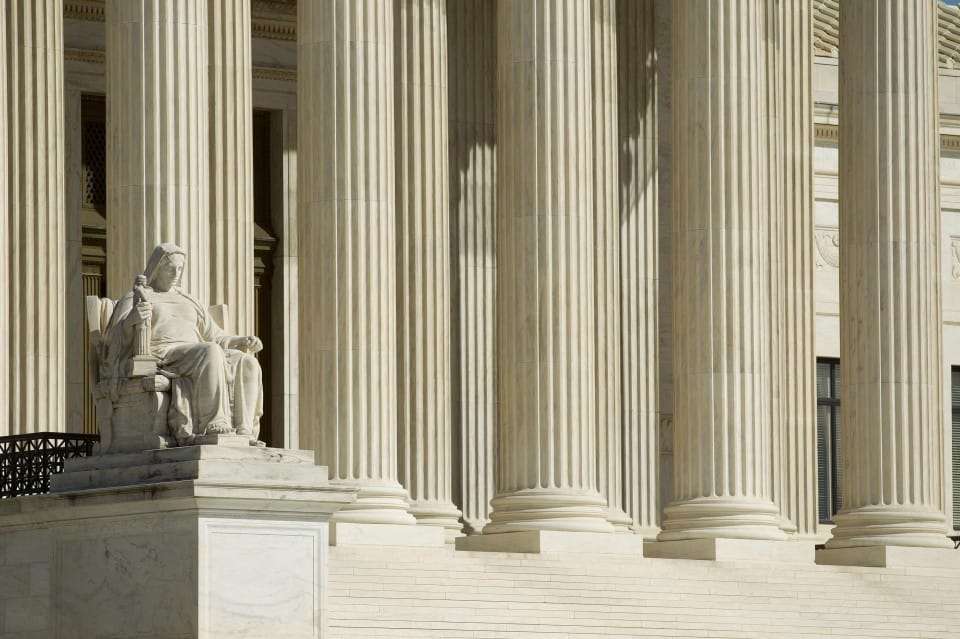The Volokh Conspiracy
Mostly law professors | Sometimes contrarian | Often libertarian | Always independent
Excommunication, Buddhists, and temple control: An interesting new Supreme Court petition

Disputes over who gets to run a religious organization - and thus to control the organization's property - are subject to interesting, complicated, controversial and often surprising rules. For instance, you see court-ordered elections for pastor of a church, or for some other church leadership positions; that might seem like a First Amendment violation, but there has to be some way of resolving who gets to speak for a church. If church bylaws call for such elections, and the bylaws can be interpreted without reference to religious doctrine, courts tend to enforce such bylaws; but of course there are often problems related to who gets to vote, since that often does turn on religious matters.
In any event, the Supreme Court is now being asked to review one such case, Tung v. China Buddhist Association; if you're interested, you can see the petition, the brief in opposition, and the reply. Professor Michael McConnell, one of the two leading Religion Clauses scholars in the country, is lead counsel for the petitioners (though the petition itself bears the name of professor Marci Hamilton, a scholar who on many issues is on the opposite side from McConnell). Here's an excerpt from the petitioners' briefing:
The court [below] allowed one of two presiding monks of the China Buddhist Association ("CBA"), supported by a faction of at most 110 adherents, to unilaterally "excommunicate" 517 members, including the other presiding monk and a resident nun, and move to shutter the Manhattan Temple by vote of the rump faction. This procedure was unauthorized by the CBA bylaws or any other governing document.
Respondents defend this extraordinary act on the ground that "[t]he CBA has always followed the Buddhist tradition of vesting a single leader - in this case, Master Chen - with absolute authority." That is not so.
But more importantly for this civil case in a civil court, it was unconstitutional for the court to rely on disputed ecclesiastical propositions of that nature. It should instead have followed the terms of the CBA bylaws, as the trial court did. …
[Paragraph moved:] Far from avoiding a determination about the validity of the purported excommunications, the court validated those excommunications. See App.11 ("[P]etitioners are not members of the CBA based upon Master Chen's excommunication of them."). Petitioners agree that a court may not second-guess the reasons for excommunication, but it has no choice but to determine whether the person purporting to exercise the power of excommunication is actually vested with it. …
This is the most recent and most egregious example of one side of a split among the states' highest courts over how to interpret the "neutral principles" approach of Jones v. Wolf (1979). … Nine state supreme courts interpret the neutral principles approach as requiring them to decide disputes over church property solely by reference to deeds, trust instruments, and corporate charters, in accordance with the state law of property, corporations, and trusts. Nine [other] state supreme courts look also to sources of church law, such as denominational canons or, as in this case, church practices or tradition, even when they are disputed and even when they are not referenced in any legal instrument.
This split creates great legal uncertainty, at high human cost. This case is a perfect example. If this Court does not grant review, Respondents will move to shutter the second oldest Buddhist temple in New York and 517 Buddhist adherents who have faithfully attended and contributed financially for years and often decades will be deprived of their place of worship. Other religious communities around the country have been faced with similar turmoil on account of the same legal error. …
And here's an excerpt from the respondents:
In January 1964, the CBA convened an organizational meeting, where it named Master Chen its President, elected trustees (which included Master
Chen), and established its bylaws. … Under Article Three of the bylaws, membership in the CBA is "open to all who are of the Buddhist faith and have been
admitted as disciples." Thus, pursuant to the bylaws, membership in the CBA is expressly predicated on two interrelated religious requirements: (i) being of
Buddhist faith and (ii) admission as a disciple of Master Chen. Article Four of the bylaws provides that notice of CBA meetings must be provided to those
members "in good standing," which restates one of the provisions of section 195 of the Religious Corporations Law.The CBA has always followed the Buddhist tradition of vesting a single leader - in this case, Master Chen - with absolute authority. …
Petitioners' argument rests on the misguided notion that the Establishment Clause should force courts to ignore corporate language about discipleship, a religious concept that reflects the self-understanding of the believers. Instead, Petitioners would compel the use of their version of "neutral principles" to override decisions of a religious organization where discipleship is the benchmark for who is a member in good standing of that community. …


Show Comments (0)